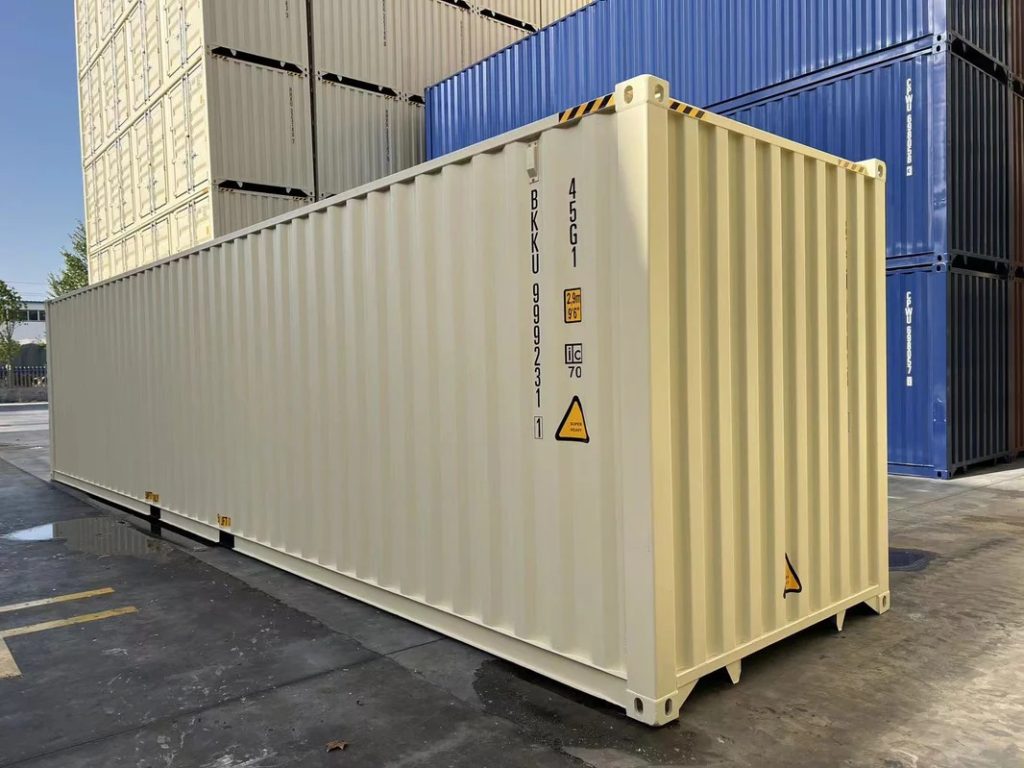The Growing Trend of Shipping Container Leasing: A Comprehensive Guide
Recently, shipping container leasing has emerged as a feasible and sustainable solution for companies and individuals alike. Provided its usefulness and cost-effectiveness, many sectors are using the advantages of leasing containers rather than buying them outright. Shipping Container Housing out the ins and outs of shipping container leasing, its advantages, essential considerations, and responses to some typical concerns regarding the practice.
Understanding Shipping Container Leasing
Shipping container leasing includes leasing a shipping container for an established duration. This setup is convenient for organizations that require short-lived storage solutions or that engage in logistics and transport without the requirement to own containers outright.
Why Lease Shipping Containers?
The appeal of leasing shipping containers can be associated to a number of factors, each offering special benefits:
- Cost Efficiency: Leasing often requires less upfront capital than buying containers outright. This can maximize cash for other critical locations in a business.
- Flexibility: With leasing contracts, companies can choose the duration of the lease based on their operational needs, permitting them to adjust to altering scenarios quickly.
- No Maintenance Concerns: When leasing, the owner-- normally the leasing business-- bears the obligation of maintenance, repairs, and examinations, minimizing the burden on the lessee.
- Range of Options: Lease agreements typically offer access to various container types, sizes, and conditions, catering to specific requirements.
- Scalability: As businesses grow, they can rapidly increase or decrease their variety of containers based upon current needs, making it easier to scale operations.
Key Considerations Before Leasing
No matter the benefits, a number of elements should be carefully weighed before going into a shipping container lease arrangement:
- Duration of Lease: Understand the terms and length alternatives readily available. Is it a short-term lease, or is there a choice for long-lasting leasing?
- Container Condition: Inspect the container condition before signing any arrangement to guarantee it meets the desired purpose-- be it for storage, transportation, or living spaces.
- Cost Structure: Look for hidden charges-- such as delivery charges, or charge costs for damages. Comprehend what is consisted of in the lease arrangement.
- Transportation Logistics: If the container needs to be carried, guarantee that the leasing company can accommodate delivery and pick-up logistics.
- Insurance Options: Check what insurance coverage covers the rented containers in case of damage or theft.
Shipping Container Leasing Options
The leasing market offers a range of container types and leasing contracts to fit various needs. The table below provides a glimpse into common kinds of leasing alternatives:
| Leasing Type | Description | Suitable For |
|---|---|---|
| Short-Term Leasing | Rentals often long lasting weeks to months. | Seasonal businesses or events. |
| Long-Term Leasing | Generally covers numerous months to years. | Permanent installations or services with constant shipping needs. |
| Dry Storage Leasing | Basic containers used for general storage. | Services needing dry storage. |
| Refrigerated Leasing | Containers geared up with refrigeration. | Perishable items or temperature-sensitive materials. |
| Modified Containers | Containers adjusted for particular usage requirements. | Pop-up stores, mobile workplaces, etc. |
Advantages of Leasing vs. Buying
Below is an in-depth contrast of the advantages of leasing shipping containers versus buying them outright:
| Category | Leasing | Buying |
|---|---|---|
| Upfront Cost | Lower preliminary financial investment. | High in advance costs. |
| Upkeep | Less duty; business manages repairs. | Lessee is responsible for upkeep. |
| Flexibility | Easy change based upon need. | Difficult to offer or customize. |
| Devaluation | No influence on balance sheets. | Loss of worth gradually. |
| Range | Access to different alternatives per need. | Restricted to what is acquired. |
Frequently Asked Questions (FAQ)
How do I find a respectable shipping container leasing business?
- Examine online reviews, compare leasing rates, and ask about customer care to evaluate the reputation of various business.
What types of containers can be leased?
- Shipping containers can vary extensively, including standard dry vans, refrigerated containers, and even modified containers for specialized requirements.
What happens at the end of a lease duration?
- At the end of the lease, the container is generally returned to the leasing company. Some companies may provide a purchase choice if you want to keep it.
Exist any covert costs in leasing containers?
- It's vital to read the leasing agreement thoroughly to recognize any hidden costs connected to damage, cleaning, or early termination fees.
Can I customize the container during the lease?
- Generally, modifications need approval from the leasing business, as unapproved modifications can violate lease terms.
Is insurance needed for rented containers?
- Lots of leasing companies require insurance coverage for rented containers. It's suggested to inspect the specific requirements before leasing.
Leasing shipping containers offers a practical option for organizations and individuals requiring flexible and economical storage or transportation options. With an industry full of variety and competitive advantages, companies can make informed choices customized to their specific needs. By understanding the alternatives available and carefully considering aspects before going into a leasing contract, companies can best position themselves for success without the monetary problem of ownership.

